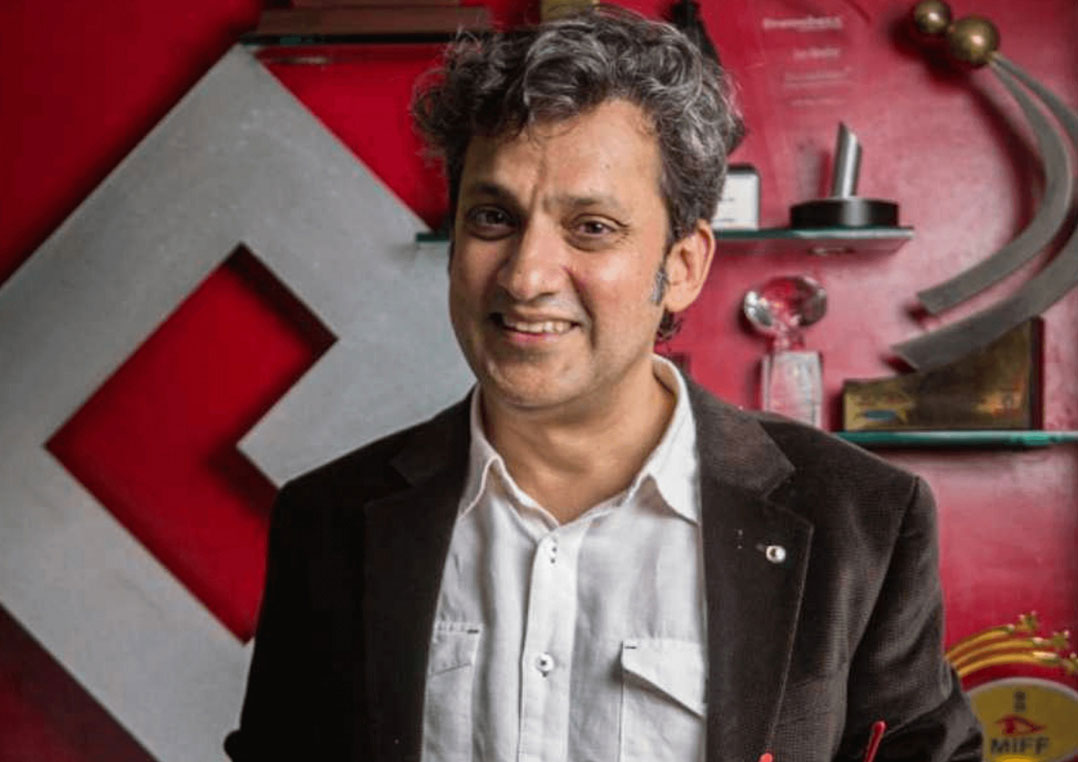Factors influencing your Footsteps
towards Storytelling and Filmmaking:
My journey with films began at a very young age. I was fortunate enough to be born to an illustrious father – Shri. Bhimsain, who was the Indian animation pioneer and avant-garde filmmaker (also the creator of the indelible short animation film ‘Ek Anek Ekta’ in the 70s). By the time I was 21, I had already made several animation short films under his guidance. But I felt the immense need to upgrade.
Hence, I applied to college overseas. In 1991, I made it to
Sheridan College, Canada, one of the finest in the world. Subsequently, I
worked with the National Film Board of Canada, making award-winning short films
for them. But short films didn’t sustain me financially. Hence in 1996, I
branched off independently and got into advertising. It’s been 25 years since
then and this indeed has been a very rewarding journey so far. J
With certainly a well-built legacy to
live upto, did you ever get overwhelmed with the pressure to be as good as your
father Late. Shri Bhimsain Khurana:
Although my father was a very prominent figure with a formidable personality, I don’t think I ever felt the pressure to compete. I felt I was carrying his work and legacy forward in the best possible manner. It was great at times, challenging at other times. But overall, the journey has been very fruitful.
I don’t think I would have been into film-making, and certainly not in
animation (which was very nascent in India in the 70s) had it not been for my
father’s setup and guidance. Till today, there are people drawing parallels
between my work and his, which makes me feel that perhaps he deeply influenced
not just my profession, but also my psyche and mental make-up. I don’t try to
resist that, nor do I try to emulate it consciously. It is what it is, and I
have accepted that without judgement.
Some of the biggest hurdles that you
had to cross towards your journey to success:
For
me, the challenge has always been to do something different and meaningful with
each project in hand. I hate repeating myself or falling in a mould. The
challenge with this approach is that people don’t trust you if you want to
venture into something you’ve not done before. It’s been very painful for most
parts to get pet projects started as there is no paradigm available. Almost
everything seems pioneering.
Having said that, I am happy that we have seen some great success as well, as a company. We produced India’s first animation series for a 24 hour TV channel Cartoon Network (Adventures of Chhota Birbal, 2002). The series was a great success and was indeed highly popular, even though we didn’t make money in it. I also directed and wrote India’s first live-action and 3D animation feature film ‘Toonpur Ka Superrhero’.
This was extremely rewarding as well. Recently we
ventured into a different territory and made highly successful documentaries
and short films. Among them ‘Saeed Mirza –The Leftist Sufi’ was among top 4
documentaries on Netflix. My recent feature film ‘T for Taj Mahal’ has garnered
acclaim worldwide, besides winning 7 International awards. So we have seen
great success in spurts. The challenge is to keep doing different things or
things differently!
How much of a responsibility do you
think filmmakers and directors have to foster social change in the society
through the medium of their work:
Technology has definitely taken the drudgery out of animation. It hasn’t, and will not ever replace the artist though, which is a great thing. So animation filmmakers still need to have a fine arts background, be able to draw and paint- to be really good at their job, else they land up with mediocrity. It still requires immense amount of patience and creativity to produce good animation.
Maybe due
to my father’s influence, or my own personality, I feel films with a purpose
and message, told in an engaging and entertaining manner, still resonates
strongly. Filmmakers have a responsibility towards society, because films
really shape the psyche of its audience. And the more creatively valuable they
are, the more they are likely to impact a change in the society. Just like any
bad film that can affect society adversely too and vitiate our culture, which
we have seen too often.
In
most of my films, I do endeavour to create social change as it is satisfying to
see that the film is not just being seen for enjoyment, but there is a
take-away for the viewer that help shape their minds.
Definition and Motto of ‘Climb Media’
and how have you manifested the future of the company:
My
father was working with Prasad Films (Chennai) in 1970, when he made his first
independent short film ‘The Climb’. The film was made on a topic given by the
Chicago Film Festival called ‘Condition of man’. My father had this ideal of a
man’s endless and relentless climb in a graph paper. The one minute nugget was
brilliant and it won the Silver Hugo at the Chicago Festival. This film became
the impetus for my father to leave his job and form ‘Climb Films’ in 1971.
Subsequently, when I took over in 2004, I changed the name to Climb Media as it
became a private limited company. That’s the genesis and journey of our name. J
Words of wisdom you’d like to share with
budding filmmakers and movie enthusiasts to weave magic and create brilliant
works of art like your esteemed films:
It takes 20 years of hard-work to become an overnight success. Stay focused, don’t expect quick results. In life, there is no replacement for hard work and no short-cuts either. Perseverance and self-learning is the key. The moot question to ask oneself each day is ‘Am I better than what I was yesterday?’ Aim for excellence, success is immaterial and will be left far behind. Cheers!

